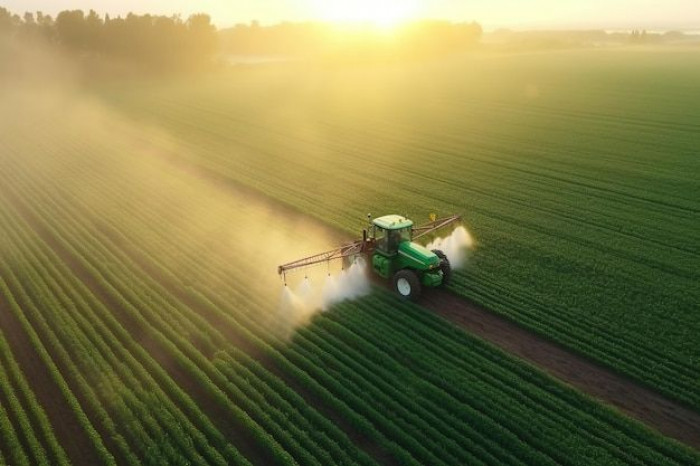Agriculture remains one of the most energy-dependent sectors in the UK, and the smooth operation of farms relies heavily on a consistent supply of agricultural fuel oils. From powering tractors and harvesters to heating barns and greenhouses, fuel is at the heart of every farming activity. Agricultural fuel oils UK are more than just an energy source—they are the driving force behind rural productivity. With dependable domestic fuel delivery services, farmers can access the fuel they need on time, ensuring that every season’s workload runs efficiently and without interruption.
What Makes Agricultural Fuel Oils Crucial for UK Farms?

The success of modern farming operations depends on having the right type of fuel available when it’s needed most. Agricultural fuel oils, such as red diesel, kerosene, and gas oil, are essential for keeping machinery, vehicles, and heating systems running smoothly. In the UK, farms operate year-round, often under unpredictable weather conditions, making a reliable fuel supply critical. Domestic fuel delivery providers understand these unique demands and ensure that fuel reaches even the most remote agricultural regions promptly. Without a reliable fuel source, farms could experience costly delays during critical stages such as planting and harvesting, thereby directly affecting productivity and profits.
How Does Domestic Fuel Delivery Support UK Agriculture?
Whether it’s a small family-run farm or a large commercial enterprise, domestic fuel delivery ensures that fuel tanks never run dry. Suppliers equipped with modern delivery fleets can reach farms quickly, even in challenging rural locations. This dependable service allows farmers to focus on their core tasks rather than managing complex logistics around fuel procurement and storage.
Which Types of Agricultural Fuel Oils Are Commonly Used in the UK?

Agricultural fuel oils in the UK encompass several key products tailored for different applications. Red diesel, also known as gas oil, remains the most popular choice for tractors, harvesters, and other off-road machinery due to its cost-effectiveness and performance. Kerosene is widely used for heating buildings and maintaining suitable temperatures in livestock areas and greenhouses. Some farms also use lubricants and renewable fuels, such as HVO (Hydrotreated Vegetable Oil), to reduce their carbon footprint. Domestic fuel delivery services cater to all these needs by providing tailored solutions that match each farm’s operational requirements and environmental goals.
How Can Efficient Fuel Management Improve Farm Productivity?
Efficient fuel management is essential for optimizing farm performance and controlling costs. Many domestic fuel delivery companies in the UK now offer fuel monitoring systems that track consumption and alert farmers when refueling is needed. Properly managed fuel supply not only enhances productivity but also reduces waste and improves budgeting.
How Do Domestic Fuel Delivery Services Maintain Safety and Compliance?

Safety and environmental responsibility are central to fuel management in the UK’s agricultural sector. Domestic fuel delivery companies must comply with strict UK regulations concerning fuel storage, transportation, and handling. These suppliers provide farmers with guidance on safe storage practices, including the use of compliant fuel tanks, leak prevention, and contamination avoidance. They also conduct regular maintenance checks and follow health and safety protocols during every delivery. By adhering to these standards, domestic fuel delivery services not only protect the environment but also help farms maintain compliance and reduce the risk of costly incidents.
Are Sustainable Fuel Options Changing the Future of UK Agriculture?
Sustainability is transforming how fuel is used in the UK agricultural sector. With growing emphasis on reducing emissions and supporting renewable energy, domestic fuel delivery providers are increasingly offering greener alternatives such as HVO and biodiesel. These renewable fuels perform as efficiently as traditional diesel but produce significantly lower carbon emissions. Farmers adopting sustainable fuel oils can reduce their environmental impact without compromising productivity. Domestic fuel delivery companies play a key role in this transition, helping farmers understand the benefits of eco-friendly fuels and facilitating a smoother shift toward renewable energy solutions.
How Can Farmers Choose the Right Domestic Fuel Delivery Partner?

Selecting a reliable domestic fuel delivery partner can make a major difference in a farm’s efficiency and long-term sustainability. UK farmers should look for suppliers who understand agricultural demands, offer flexible scheduling, and maintain high-quality standards. The best providers are those who prioritize customer service, deliver on time, and offer expert advice on fuel storage and usage. Establishing a long-term partnership ensures consistent service, better pricing, and peace of mind for farmers across the UK.
Why Does Agricultural Fuel Oil Supply Matter for the UK’s Future?
Agricultural fuel oils power the machinery that drives crop production, livestock management, and food supply chains. Without dependable domestic fuel delivery, farms would face disruptions that could affect productivity and food security nationwide. As farming practices evolve and sustainability becomes more important, domestic fuel suppliers will continue to play a central role—providing cleaner fuels, advanced delivery systems, and trusted expertise. Their contribution ensures that UK agriculture remains efficient, resilient, and ready for the challenges of the future.
How Does Technology Improve the Efficiency of Domestic Fuel Delivery?

Modern technology is transforming how agricultural fuel oils are managed and delivered across the UK. Many domestic fuel delivery companies now use GPS tracking, automated scheduling, and smart tank monitoring systems to enhance efficiency and accuracy. These innovations ensure on-time deliveries and prevent unexpected shortages on farms. Farmers can even receive real-time updates on delivery status and consumption levels, allowing them to plan operations more effectively. By embracing technology, domestic fuel delivery services are making the process more transparent, efficient, and adaptable to the ever-changing needs of UK agriculture.
What Does the Future Hold for Agricultural Fuel Oils in the UK?
As the UK continues its journey toward sustainability, the future of agricultural fuel oils will focus on cleaner alternatives, advanced logistics, and greater energy efficiency. Domestic fuel delivery providers are expected to expand their range of renewable fuels while investing in greener transport fleets to further reduce emissions. Collaboration between farmers, suppliers, and policymakers will be crucial in shaping a low-carbon agricultural industry that balances productivity with environmental responsibility. With innovation and reliability at its core, the future of agricultural fuel oils in the UK promises a more sustainable and energy-secure farming sector for generations to come.











Comments